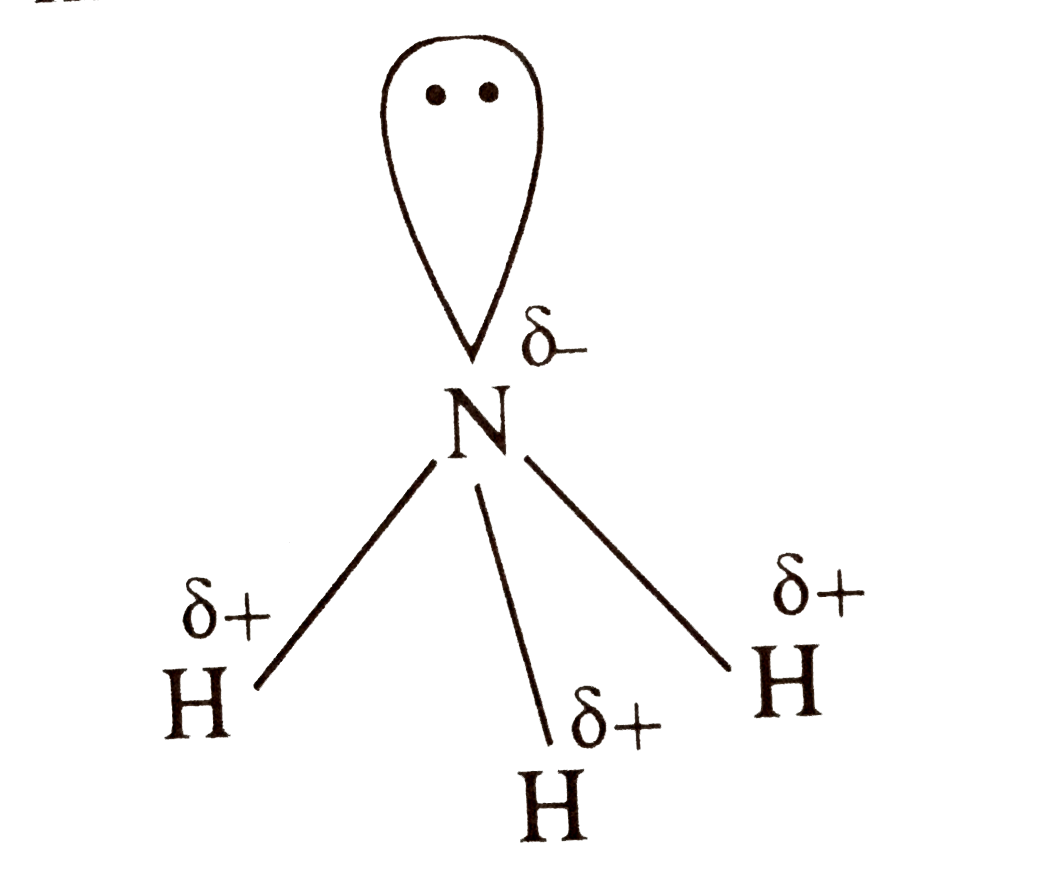Which of the following has highest dipole moment?
A
NH3
B
PH3
C
AsH3
D
SbH3
Video Solution
Text Solution
The correct Answer is:A
Dipole moments of group 15 hydrides decreases down the group. Thus, NH3 highest dipole moment (N is most electronegativity).

|
Updated on:21/07/2023
Topper's Solved these Questions
- BOOK - DINESH PUBLICATIONCHAPTER - THE NITROGEN FAMILYEXERCISE - Selected straight objective type38videos
THE NITROGEN FAMILY
- BOOK - DINESH PUBLICATIONCHAPTER - THE NITROGEN FAMILYEXERCISE - Linked comprehension3videos
THE NITROGEN FAMILY
- BOOK - DINESH PUBLICATIONCHAPTER - THE NITROGEN FAMILYEXERCISE - Ultimate14videos
THE NITROGEN FAMILY
- BOOK - DINESH PUBLICATIONCHAPTER - THE HALOGEN FAMILYEXERCISE - ULTIMATE PREPARATORY PACKAGE16videos
THE HALOGEN FAMILY
- BOOK - DINESH PUBLICATIONCHAPTER - THE NOBLE GASESEXERCISE - Brain Teasers - 2040videos
THE NOBLE GASES
Similar Questions
Knowledge Check
- Question 1 - Select One
Which one of the following has the highest dipole moment ?
ANH3BPH3CSbH3DAsH3 - Question 2 - Select One
Which of the following has the highest dipole moment?
Ao-DichlorobenzeneBm-DichlorobenzeneCp-DichlorobenzeneDAll have equal values - Question 3 - Select One
Which of the following has the highest dipole moment ?
ACO2BF2CH2ODBeF2
Which of the following has the highest dipole moment?
View SolutionWhich of the following has the highest dipole moment.
View SolutionPolarity in a molecule and hence the dipole moment depends primarily on electronegativity of the constituent atoms and shape of a molecule. Which of the following has the highest dipole moment?
View SolutionPolarity in a molecule and hence the dipole moment depends primarily on electronegativity of the constituent atoms and shape of a molecule. Which of the following has the highest dipole moment?
View SolutionWhich of the following has lowest dipole moment?
View Solution
